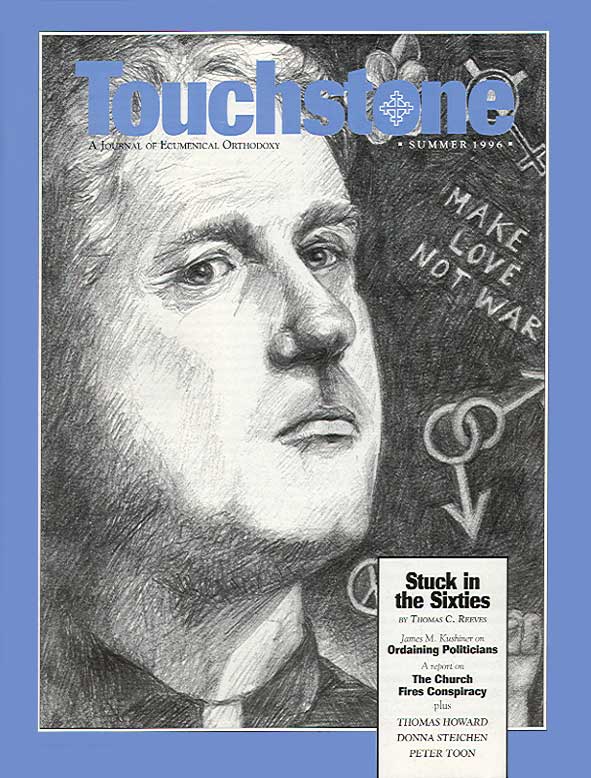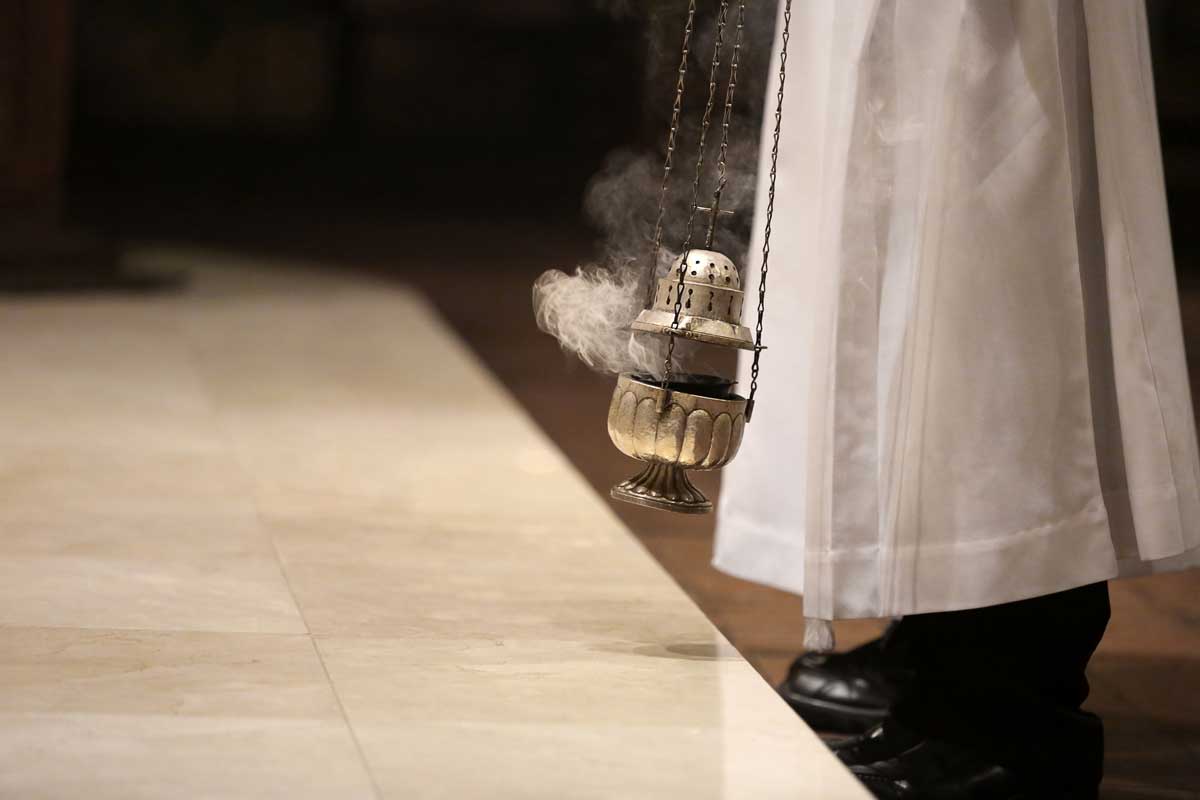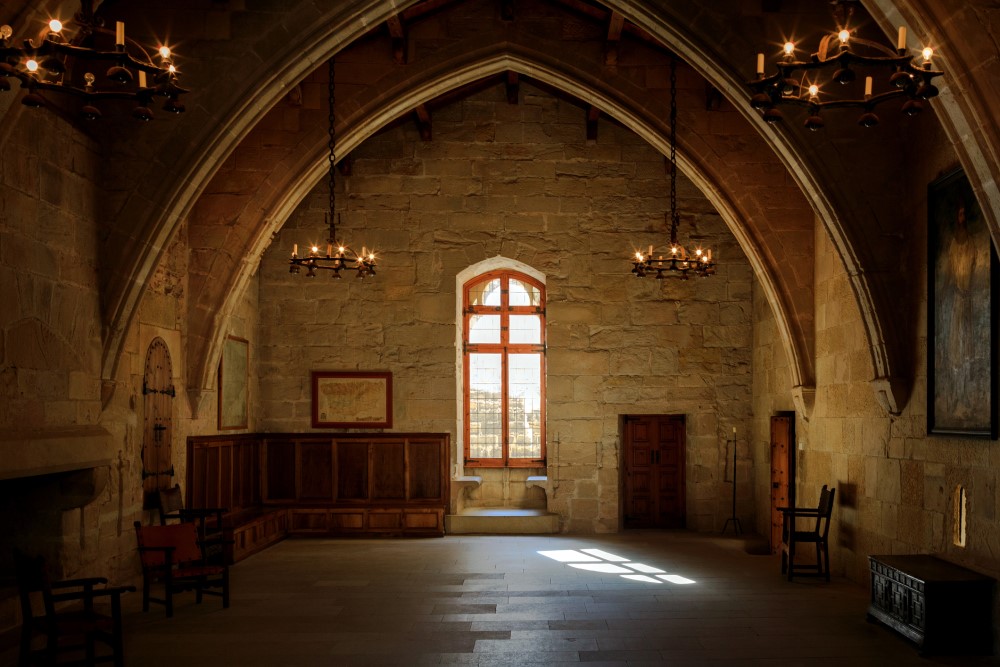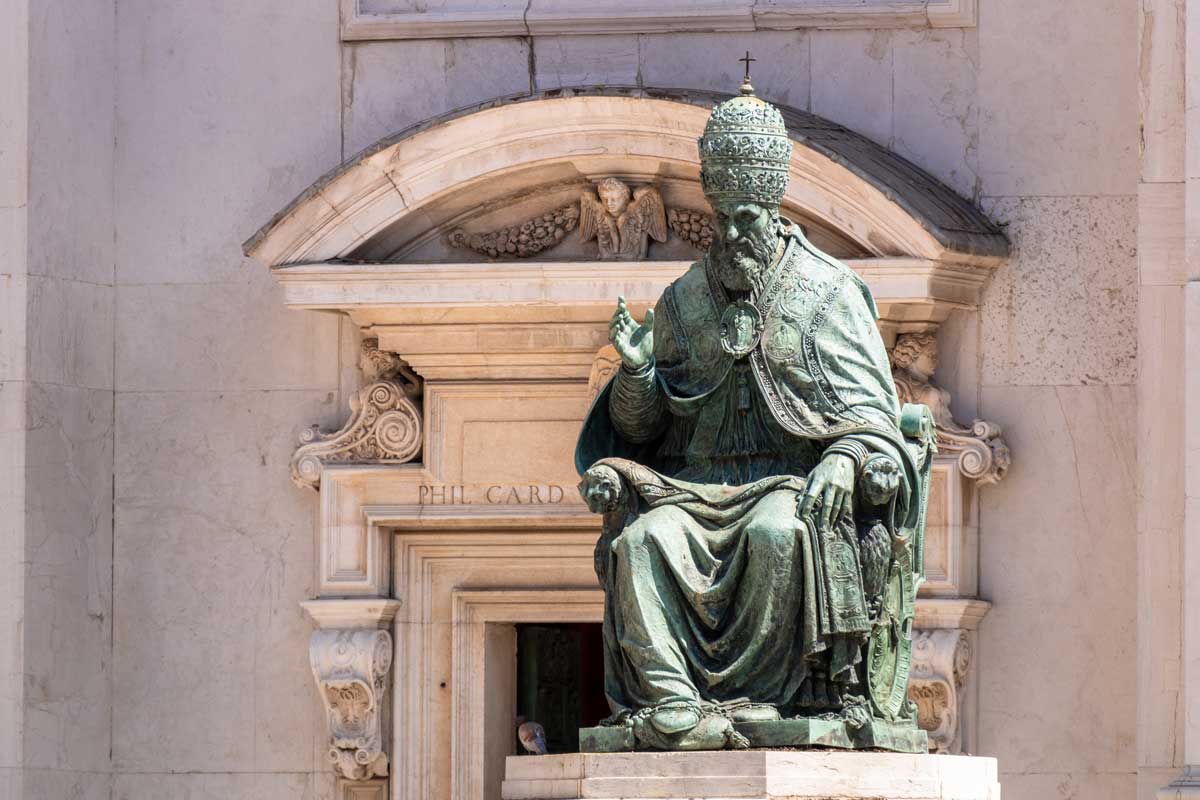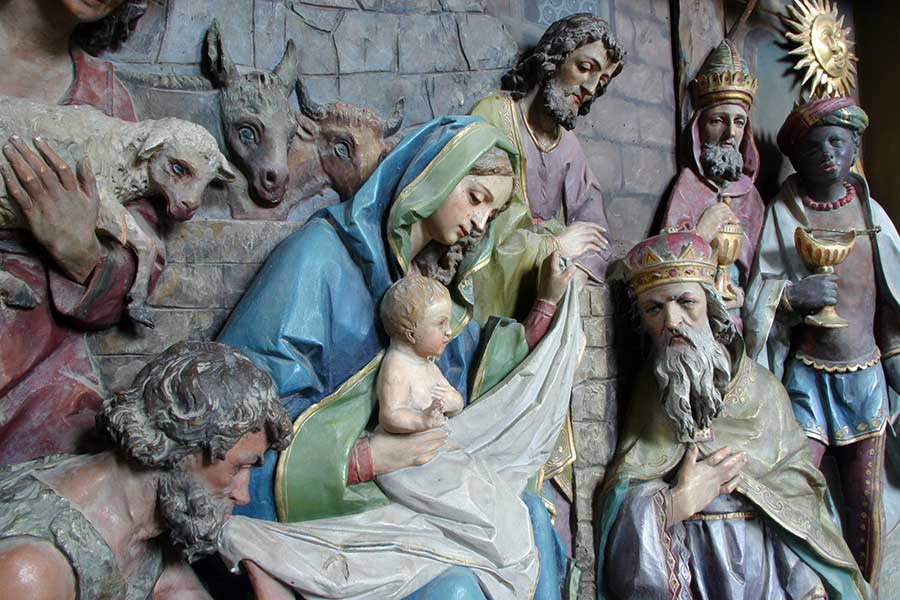Feature
Brideshead Revisited Revisited
Moral Imagination & the Catholic Faith in Evelyn Waugh’s Modern Novel
The late Russell Kirk spoke often of “the moral imagination.” By it he referred to that whole backdrop, or set of underpinnings, that corroborates for us mortals the fixities of the moral law. We are not angels: hence we do not encounter Reality directly. We are protected (“from heaven and damnation,” says Eliot) by the merciful arch, or filter, we might say, of the temporal and spatial, which bring with them the forms and colors that address our imaginations.
When we use this phrase, moral imagination, we do not mean that the moral world exists only in the realm of fancy. Rather we refer to the vision of good and evil that we find in works of fiction. It is a vision that not only suffuses these works, but also presides over the terms of these fictions, nay, that determines the very stuff and texture of them.
Take, for example, the fourteenth-century Vision of William Concerning Piers the Plowman: here we have, in an allegory to be sure, not merely the picture of a personality, or of a whole world, but, beyond these, the vision of what constitutes goodness and badness. Or take Gawain: the trouble in that poem is that Gawain has sinned (not that he is “out of touch with his feelings,” or that he has been “victimized”). There is a moral litmus test brought to bear on his behavior. In The Faerie Queene, all the thick woods and grottoes and hags and perils are to be understood in moral, and not merely psychological, or linguistic, terms. In Measure for Measure, the thing that has them all apoplectic in Vienna is the matter of sin and its punishment. We playgoers may enjoy the leisure and luxury of beholding fascinating personalities at work—Isabella and Angelo and Lucio and Claudio—but the nub of the drama is a moral matter.
The Waning of Moral Imagination
It is not without significance that we often reach for Renaissance and pre-Renaissance fiction when we speak of the moral imagination. By the time we get to Fielding, and then Jane Austen, Trollope, Henry James, and Virginia Woolf, we are not sure that “moral” is altogether the apt word. To be sure, all of these authors undergird their stories, in some sense, with a world of moral suppositions. Trollope, for example, shows how all the dramatic currents and countercurrents flow over a bed, so to speak, of moral assumptions. The sanctity of marriage is there, for example, and truthfulness, and generosity, and fidelity to one’s duties, and benevolence: it is all there. But the main thing that engages our attention in Barset, or among the Pallisers, is not a rock-bottom question about goodness and evil; Trollope has not set out primarily to extol morality or religious truth.
Walker Percy makes this distinction, speaking of fiction:
Let me define the sort of novelist I have in mind. . . . He is . . . a writer who has an explicit and ultimate concern with the nature of man and the nature of reality. . . . One might apply to the novelist such adjectives as “philosophical,” “metaphysical,” “prophetic,” “eschatological,” and even “religious.”. . . Such a class might include writers as diverse as Dostoevsky, Tolstoy, Camus, Sartre, Faulkner, Flannery O’Connor. Sartre, one might object, is an atheist. He is, but his atheism is “religious” in the sense intended here: that the novelist betrays a passionate conviction about man’s nature, the world, and man’s obligation in the world. By the same token, I would exclude much of the English novel—without prejudice: I am quite willing to believe that Jane Austen and Samuel Richardson are better novelists than Sartre and O’Connor. The 19th century Russian novelists were haunted by God; many of the French existentialists are haunted by his absence. The English novelist is not much interested one way or another. The English novel traditionally takes place in a society as every one sees it and takes it for granted. If there are vicars and churches prominent in the society, there will be vicars and churches in the novel. If not, not. So much for vicars and churches. ( The Message in the Bottle. New York. 1982. p. 103).
Waugh Steals a March
It is not to be urged that Evelyn Waugh should be thought the equal of Tolstoy, or even of Jane Austen. Nevertheless, his fiction raises piquant questions, if we are speaking of the moral imagination and twentieth-century English language fiction—particularly Brideshead Revisited. But his Sword of Honor trilogy also would certainly raise similar questions, most notably in the figure of the protagonist’s father, old Gervase Crouchback. We would need to undertake a wide canvass in order to discover another character in recent fiction who exhibits in such stark colors the quality that we can only call holiness. We, jades that we moderns are, find ourselves hailed, against all plausibility, with holiness—that is the only word for it—in the figure of Gervase Crouchback. And it is done, mirabile dictu, without the faintest whiff of sentimentality.
But in Brideshead Revisited, Waugh has done the almost unthinkable. He has given us (jades, if the accusation is not too fierce) a full-blown acclamation of Catholic piety, vision, morals, and dogma, but in terms that steal a march past merely modern sensibilities, and in fact virtually swamp those sensibilities.
Thomas Howard taught for many years at St. John's Seminary College, the Roman Catholic seminary of the archdiocese of Boston. Among his many works are the books Christ the Tiger, Evangelical Is Not Enough, Lead Kindly Light, On Being Catholic, and The Secret of New York Revealed, and a videotape series of 13 lectures on "The Treasures of Catholicism" (all from Ignatius Press).
bulk subscriptions
Order Touchstone subscriptions in bulk and save $10 per sub! Each subscription includes 6 issues of Touchstone plus full online access to touchstonemag.com—including archives, videos, and pdf downloads of recent issues for only $29.95 each! Great for churches or study groups.
Transactions will be processed on a secure server.
more on Catholic from the online archives
more from the online archives
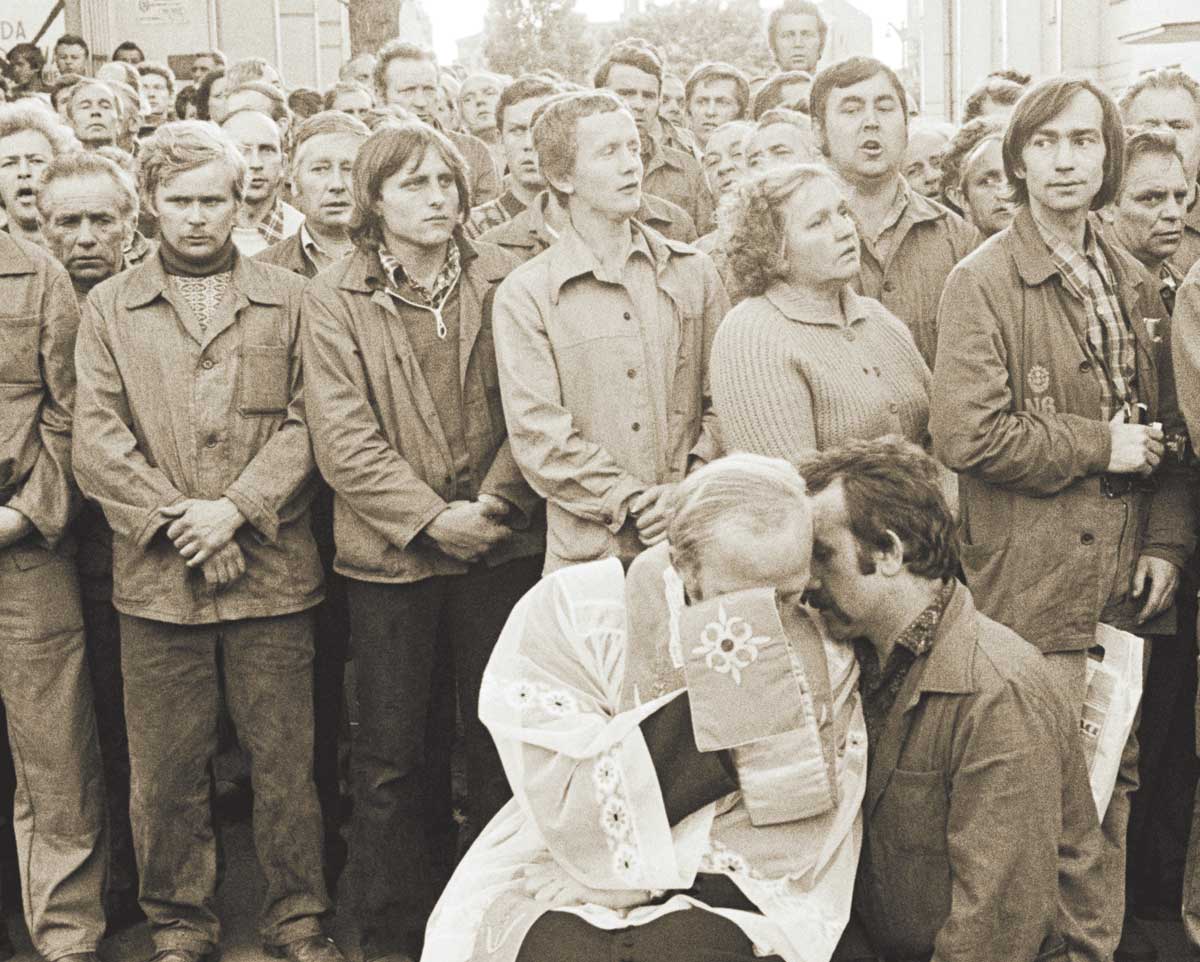
19.10—December 2006
Workers of Another World United
A Personal Commemoration of Poland’s Solidarity 25 Years Later by John Harmon McElroy
calling all readers
Please Donate
"There are magazines worth reading but few worth saving . . . Touchstone is just such a magazine."
—Alice von Hildebrand
"Here we do not concede one square millimeter of territory to falsehood, folly, contemporary sentimentality, or fashion. We speak the truth, and let God be our judge. . . . Touchstone is the one committedly Christian conservative journal."
—Anthony Esolen, Touchstone senior editor





